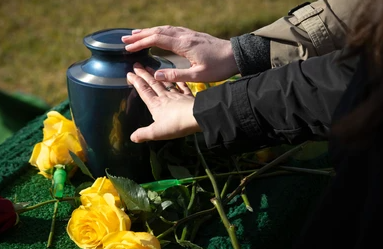In an era where cremation is becoming an increasingly popular choice for end-of-life arrangements, the role of headstones might seem diminished. After all, the traditional association of headstones is with burial plots in cemeteries. However, headstones still hold profound significance in cremation, offering a tangible way to honor and remember loved ones.
Commemorating a Life Lived
Cremation has gained popularity for various reasons, including its cost-effectiveness and flexibility in memorialization. Unlike traditional burials, where a headstone often marks a grave, cremation allows families to choose a variety of ways to commemorate their loved ones. Yet, the presence of a headstone can provide a focal point for remembrance.
A headstone in a cremation garden or columbarium serves as a place where families and friends can gather to reflect on cherished memories. It becomes a physical representation of the person’s life, a place to visit, and a source of comfort for those who continue to grieve.
Personalization and Expression
One of the advantages of headstones in cremation is the opportunity for personalization. While cremation itself allows for creative and unique memorial options, such as scattering ashes in meaningful locations or turning them into keepsake jewelry, a headstone can be a canvas for artistic expression.
Families can choose designs, inscriptions, and materials that reflect the individuality of their loved ones. From beautiful engravings to customized artwork, headstones can tell a story, capturing the essence of the person they commemorate. This level of personalization ensures that the memory lives on in a way that is meaningful and true to the person’s life.
Creating a Lasting Legacy
A headstone is a tangible symbol of a person’s existence on this earth. It becomes a part of the landscape, a lasting legacy that future generations can visit and learn from. Unlike digital memorials or social media profiles, which can fade or disappear over time, a headstone endures. It stands as a testament to a life lived, preserving the memory for years to come.
Moreover, headstones in cremation can serve as educational tools for younger generations. They can learn about their ancestors, their heritage, and the values that were important to their family. Headstones provide a connection to the past, bridging generations and keeping family histories alive.
A Place for Reflection
The act of visiting a headstone can be a deeply meaningful and therapeutic experience. It provides a designated space for contemplation, a place to remember and pay respects. Whether it’s a solitary visit to reflect on a special occasion or a communal gathering on anniversaries, headstones provide a sense of continuity and connection.
In a world that often moves at a frantic pace, having a tranquil place to remember loved ones can be profoundly healing. It allows individuals to slow down, to remember, and to feel the presence of the person they’ve lost. In this way, headstones become an essential part of the grieving process.
Conclusion
While cremation offers a range of options for memorialization, the significance of headstones cannot be overlooked. They provide a physical and lasting connection to the past, a canvas for personal expression, and a place for reflection. Headstones in cremation enable families to commemorate their loved ones in a way that is both meaningful and enduring, ensuring that their memories are preserved for generations to come. In a rapidly changing world, headstones stand as steadfast markers of the lives that have shaped our histories and our hearts.





